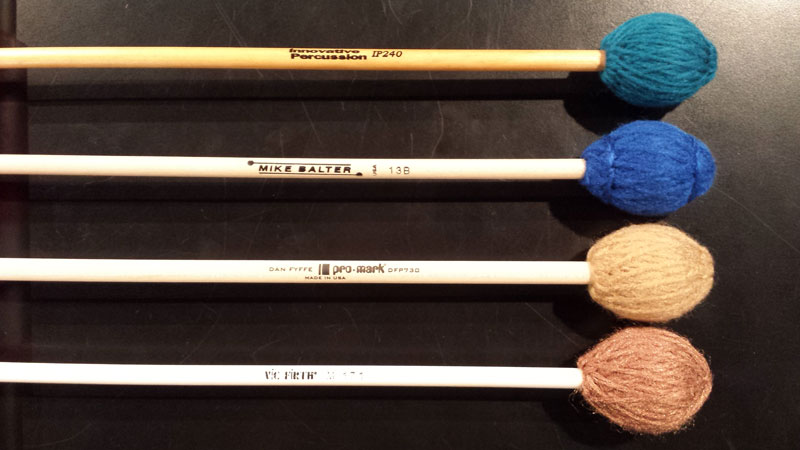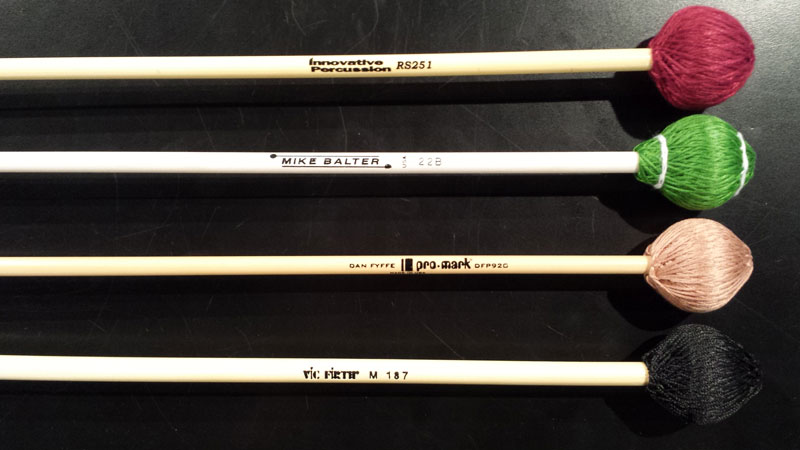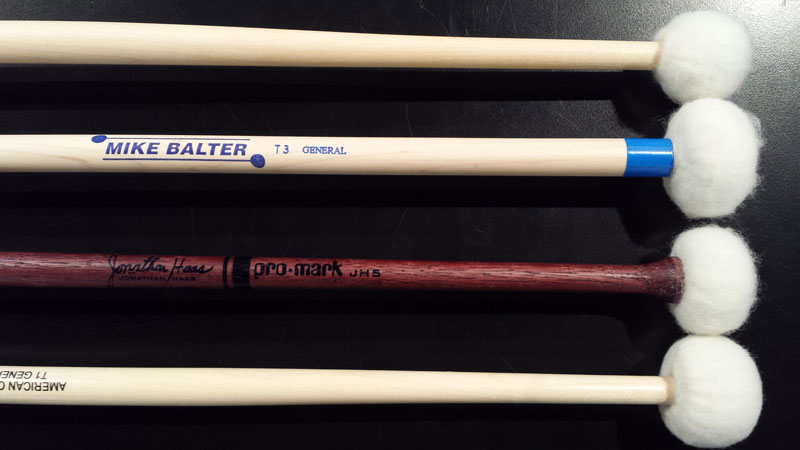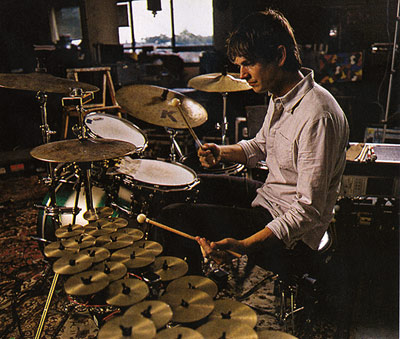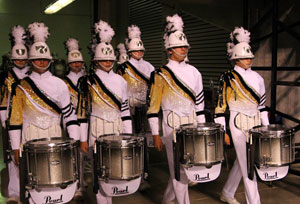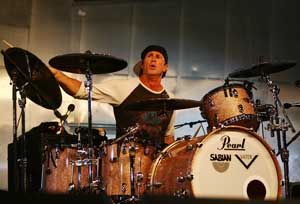Welcome back to the Chops blog! A couple of weeks ago Jeff wrote a great guide to the WGI independent drumlines in the area. If you haven’t already seen it, check it out here. Today I’d like to continue on the subject of drumlines by providing a few tips for auditioning.
In my younger days I spent lots of years marching with several drum corps and winter drumlines. Having successfully, and unsuccessfully auditioned for a number of groups, I’d like to offer the following advice:
1. Have reasonable expectations.
It’s critical that you enter an audition with reasonable expectations. While the world class corps and drumlines are the most impressive, only the best and most experienced candidates will make the cut. In other words, audition for a group that you have a reasonable chance of joining.
If you’re still young, and have a limited amount of experience, you should consider auditioning for an “open”, or “A” class group. Membership in these groups is typically not as competitive, and will help a young student develop crucial skills and gain experience. Many members of the best marching organizations have many years of experience, including seasons spent with scholastic, “A”, and “open” class groups.
The first group I auditioned for as a high school student was a “Division I” (now known as “World” class) drum corps. When I didn’t make the cut, I successfully auditioned for a “Division III” (now known as “Open” class) corps. After marching for two seasons with this smaller, younger corps, I was ready to march in a “Division I” corps and “World” class winter drumline.
2. Have a plan.
After you decided on a group, start planning your audition. Obtain the audition materials, figure out your schedule, and make arrangements to attend the audition. The more time you give yourself to prepare, the better chance you have of making the cut.
3. Be prepared.
This is as simple as knowing the audition material perfectly, from memory. The better prepared you are, the better chance you have of making the cut.
In addition to learning the audition material, be sure to study the group and their playing style. Watch video of their latest performances to study the details of how, and what they’re playing.
4. Be flexible.
Be prepared for the audition to include some kind of surprise. It might include learning a new exercise or show music, or a different way of playing the material you already prepared. The staff will throw you some sort of curveball to see how you handle stress, adapt to stress, and how quickly you can learn.
5. Be friendly.
In addition to your playing and marching ability, you will also be evaluated on your social skills. Drum corps and winter drumline seasons are long, and can be stressful, so your ability to get along with others is crucial. Don’t let the competitive nature of an audition affect you negatively: be friendly to everyone, including the other audition candidates.
6. Don’t miss a learning opportunity.
Regardless of whether you make the cut or not, don’t miss the opportunity to learn. Keep your eyes and ears open. The staff and veteran members are experts at marching music, and great examples of what you should emulate.
Many world class groups also offer the ability to attend and participate in auditions without being considered for membership. If you’re young and inexperienced, this is a great way to learn and prepare yourself to audition in the future.
7. Take any opportunity you’re offered.
While it’s disappointing when you’re not offered a spot or membership with your instrument of choice, don’t decline the opportunity to join the group in another role. For instance, if you are offered a spot in the pit even though you auditioned for snare drum, take it! Don’t decline an opportunity to perform and gain experience just because you’re disappointed. The experience and skills you gain will still benefit you, and prepare you to audition for snare in the future.
With this advice in mind, you should be ready to audition for a winter drumline or drum corps. Remember, there’s no shame in failing! Prepare well, be confident, and chances are you will eventually make that group you admire.
Get to work, auditions are rapidly approaching!

